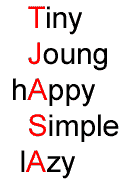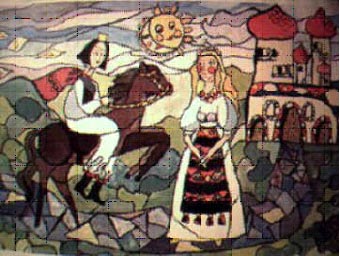|
Connecting Learners in the Global Classroom Citizens of the world… Building a generation of students who are aware, concerned and involved global citizens is a challenging task. The future is in the hands of the students sitting in our classrooms - tomorrow's leaders. Teachers who bring the world into their classrooms develop a global perspective for themselves and help their students become more aware of the world around them. Communicating online with other learners around the world is one small step that can help bring about positive global change. Kidlink Kidlink is a global organization that brings youth together from all over the world. Since the start in 1990, children from 152 countries have participated. The goal of the Kidlink organization is "global dialogue for youth" through secondary school. As students enter Kidlink they are asked to answer 4 questions:
Kidlink Programs - a world view I Have a Dream
Participating students are asked to share their dreams for a better world. Students at School #72 in Novokuznetsk, Russia wrote:
Our Dream
We think we must make our world better ourselves. Everyone must do some useful things in our life. Pollution is one of the greatest problems of our past, present and future. If we want our children to live in the same world we live in, we have to learn how to protect the water, the air and the Earth from pollution. Now this problem is one of the most vital problems in our city, because there are a lot of enterprises and plants in it. They exhaust poisonous substances into the atmosphere. It causes dangerous diseases. Old people and especially children suffer from them. Now we dream of making our home city a better place for the future generation. Each of us can contribute something to coming our dream true. Do you have the same problem in your place? And what do you think each of us can do to solve it?
Who Am I? Program Kidlink's "Who Am I?" program is an eight month program, divided into six modules, that brings students together to discuss these topics:
Module 1: Who Am I? The "Who Am I" program gives students a chance to bring the world into their classrooms as they examine many important aspects of their lives and dialogue with their peers around the world. Students very quickly learn how very much alike we all are no matter where we live. In one of the many discussions in the first module, students discuss names, nicknames and the most popular names in their school. This student from Slovenia reminds us how important it is for others to use the correct characters in her name. From Slovenia http://kidspace.kidlink.org/kidspace/start.cfm?HoldNode=5492
Who Am I?
I don't create my own music, but I like listening to it very much. In my free time I often listen to pop music. It's my favourite music, because it is very popular. For our country polka is a typical dance.
What Are My Rights?
In Module 3 of the "Who Am I?" program students consider the rights of youth everywhere. They are asked to express these rights using art as well as text. Annalisa from Italy made this drawing to express her ideas of rights for all youth. From Italy
http://kidspace.kidlink.org/kidspace/start.cfm?HoldNode=1681 Drawing by Annalisa C..- age 11 - Italy
She says: From Spain Lorena in Spain realizes that along with rights come duties and responsibilities. She made a collage to express her feelings on the topic.
http://kidspace.kidlink.org/kidspace/start.cfm?HoldNode=1447 Art by Lorena Jesús- age 12 From Iceland I think everybody should know about their rights and I'm afraid that not everybody knows which rights they have. I guess I'm aware of which rights I have. In my country children become adult in age of 18, at least they become self supporting by laws, so legally their parents do not have to take care of them. For not so many years children became adult by 14, it changed to 16, and finally 18. You can not marry in my country until you are 18. But actually nobody looks at you as an adult before you get 20, until then you are still a teenager. I guess I agree with this, at least I don't look at myself as an adult, and I'm seventeen, and I don't think I will look at myself as an adult in a year. I think that for example going to school is everybody's right, but going to special and private school are a kind of privilege. Rights are infringed when a child can't go to school, doesn't get the health care he or she needs. I think my right to be able to get the education I'm getting is very important, at least I'm very grateful of being able to get it. Lilja Rut
What Are My Roots?
In Module 5 of the "Who Am I?" program students "climb" into their Family Tree by taking a look at their immediate families as well as their ancestors. They try to discover how their families lived years ago and how their ancestors helped shape them into the young people they are today.
http://kidspace.kidlink.org/kidspace/start.cfm?HoldNode=118 I have always lived in Muggiò. My father lived in Nova Milanese when he was young but then he moved because he found a new and bigger flat. My mother too has always lived in Muggiò, but my grandparents are from Puglia and Sicily. They moved to the north of Italy when they were children, because their parents didn't find any job there. My grandfather and my uncle live in a small town not far from Muggiò and I Spend a lot of time with my granddad, because my mother works, so I prefer to stay with him, instead of being alone all time. Our family always meet on Christmas day, new year's day and Easter. A typical dish my granny cooks is "orecchiette" with tomato sauce. Orecchiette are a particular kind of pasta My grandfather was a glass maker and my father does the same. Bye Vittorio WordWeavers In this Kidlink project students publish their writing in KidSpace and share insights about themselves, their homeland and their imaginations. Students from Romania have written about St. Andrew's Day and Halloween. St. Andrew's Day or "Wolf's Day" as it is called, is November 30th. From Romania
During this night girls also go to the wells, light Easter candles and they slowly put them on the water surface. When the water is well lighted they say:
Saint Andrew, On St. Andrew's Evening girls and boys plant wheat seeds. The first to have seed grown is to be luckier than the others are. http://kidspace.kidlink.org/kidspace/start.cfm?HoldNode=5688 In conclusion… Teachers who bring the world into their curriculum activities open doors to exciting opportunities for their students. By participating in global projects with learners from other parts of the world, today's students develop a deeper understanding of people from many nations and diversities.
Patti Weeg
Technology: Motivating the Modest Achiever - Newsletter article 1 |
 Kidlink has designed a complete nine month program called "I Have a Dream" which challenges students to work collaboratively, across the globe, to create a "dream plan" and make their dreams for a better world come true. There are six modules complete with lesson ideas, discussion topics, curriculum connections and many resources. It can be found here:
Kidlink has designed a complete nine month program called "I Have a Dream" which challenges students to work collaboratively, across the globe, to create a "dream plan" and make their dreams for a better world come true. There are six modules complete with lesson ideas, discussion topics, curriculum connections and many resources. It can be found here:
 My name is Tjaša. I work in a project Who am I? together with some of my classmates. We are a group of about 25 students. The most popular name is Nika. I think it is so, because we know many girls called Nika. In my school the most popular name for a girl is Polona and for a boy Rok. In my country the most popular name is Maria. If I could have a different name I would choose Klara or Neža. I don't have a nick name.
My name is Tjaša. I work in a project Who am I? together with some of my classmates. We are a group of about 25 students. The most popular name is Nika. I think it is so, because we know many girls called Nika. In my school the most popular name for a girl is Polona and for a boy Rok. In my country the most popular name is Maria. If I could have a different name I would choose Klara or Neža. I don't have a nick name.
 I don't know the meaning of my name and names of the other members of my family. For example there are some long and complicated names: Katarina, Klaudija, Amela. I think it is important to call a person by his name or to pronounce it correctly. When others don't use it correct characters in my name I'm very sad. In my country children take surnames from the father's surname. Mostly all family members have the same surname. I've got a pet. It's a hamster. Its name is Pika.
I don't know the meaning of my name and names of the other members of my family. For example there are some long and complicated names: Katarina, Klaudija, Amela. I think it is important to call a person by his name or to pronounce it correctly. When others don't use it correct characters in my name I'm very sad. In my country children take surnames from the father's surname. Mostly all family members have the same surname. I've got a pet. It's a hamster. Its name is Pika.



 St. Andrew's night is one of the most important the year regarding witchcraft and magic. Girls measure 9 teacups with water and they put them into a bowl. The next day they measure the water from the bowl with the same teacup. If water remains at the bottom of the bowl they'll be lucky that year. If there is some water missing from the 9th teacup, they'll be unlucky and won't get married that year. During St.Andrew's Night girls put 41 wheat reeds under their pillow. If they dream that someone takes their wheat away they'll get married. Girls also bake a knot-shaped bread and they put garlic in the middle. At home they put this bread in a warm place. If within a week the garlic rises they'll be lucky.
St. Andrew's night is one of the most important the year regarding witchcraft and magic. Girls measure 9 teacups with water and they put them into a bowl. The next day they measure the water from the bowl with the same teacup. If water remains at the bottom of the bowl they'll be lucky that year. If there is some water missing from the 9th teacup, they'll be unlucky and won't get married that year. During St.Andrew's Night girls put 41 wheat reeds under their pillow. If they dream that someone takes their wheat away they'll get married. Girls also bake a knot-shaped bread and they put garlic in the middle. At home they put this bread in a warm place. If within a week the garlic rises they'll be lucky.